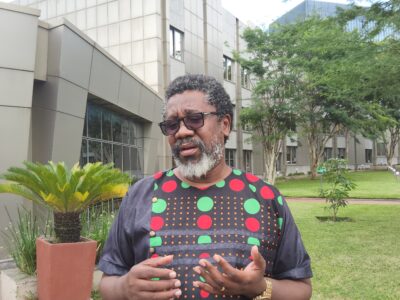The National Health Insurance Scheme (NHIMA) membership and beneficiaries have grown from 1.6 million in 2021 to over 4.6 million as at June 2024, according to authorities.
Health Minister, Sylvia Masebo, stated that this growth represented 23 percent of Zambia’s population, which currently stands at nearly 20 million people.
Masebo highlighted this in a ministerial statement on the implementation of NHIMA to the National Assembly on Wednesday.
She noted that NHIMA contributions were the lowest of any health insurance scheme, averaging only K50 per family of seven members.
“Citizens and established residents should not wait to fall ill before registering. Those between 18 and 64 years should register as contributing members of the scheme, both from the formal and informal sectors,” Masebo said.
She explained that children below 18 years should be registered as beneficiaries under a principal contributing member, and those aged 65 years and above are exempt from making contributions.
To further enhance registration, NHIMA had partnered with the Global Fund and the International Labour Organization to launch the registration of over 100,000 Social Cash Transfer Beneficiaries as members.
“To this effect, 10,000 beneficiaries were registered in Ndola during the official launch and are eligible to access health services under NHIMA,” Masebo highlighted.
However, she noted that this partnership only provided for 100,000 members and beneficiaries against the 1.3 million currently categorized as poor and vulnerable by the Ministry of Community Development and Social Services.
Currently, NHIMA has 406 accredited facilities spread across the country.
“To ensure every Zambian has access to a NHIMA facility near them, the government has directed NHIMA to ensure that each district has an accredited health facility and a registration office,” Masebo said.
Additionally, since NHIMA’s return to the Ministry of Health, several policy reforms have been devised and are under implementation to maintain its financial health.
Key reforms included a mass registration exercise to cover the informal sector, suspending the accreditation of new private healthcare providers to prioritize financing public facilities, revoking accreditation for health facilities involved in insurance fraud, reviewing the NHIMA benefits package and enhancing NHIMA’s collection capacity.
“These measures are aimed at safeguarding public funds and ensuring value for money,” Masebo added.
WARNING! All rights reserved. This material, and other digital content on this website, may not be reproduced, published, broadcast, rewritten or redistributed in whole or in part without prior express permission from ZAMBIA MONITOR.












Comments